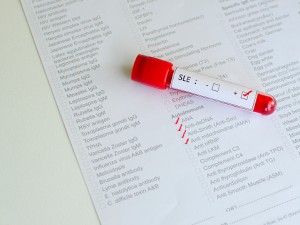Lose Weight > Common Sense To Lose Weight > Common Sense Article > Why BMI Is A Terrible Measure Of Your Health
Why BMI Is A Terrible Measure Of Your Health

You've probably sat and stared at the BMI chart in your doctor’s office and plotted out where you fall. And, if you're like me, you got a knot in your gut when you saw where your fingers met as you scrolled through the rows and columns. Worse yet, your doctor most likely confirmed your fears, advising you to go on a diet to lose weight.
So how accurate is this test? BMI is a good measure in some regards; however, it really doesn’t tell you the whole picture.
Are you one of those people who are strong and physically active yet still falls under the overweight or obese area of the chart? Or, perhaps you're thin, yet feel somewhat weak and fall under the healthy weight category? If this sounds familiar, don’t panic. BMI is not the be all, end all of our health. It's not just our weight and height that measures health; it's the ratio of lean mass to fat mass, something the BMI chart can't determine.
But, if this chart created and relied upon by physicians doesn’t give us a clear picture, what does?
The answer is simple: you need to get a body composition test. This test will tell you what percentage of your body is comprised of lean mass and what percent is fat mass.
Wondering why you should take this extra step to assess your health? Let me share with you an example: Take the case of my client, Kim. Kim is in her mid-40s, is 5’7”, weighs 175 pounds and has a classic pear-shaped body. The BMI chart would put Kim at a BMI of 27.4 in the range of overweight. Kim is a woman who has completed numerous marathons, century rides, Olympic and half Ironman triathlons, and trains in CrossFit, yet still worries about her weight. After Kim told me about her athletic endeavors and the struggle she has getting her weight down, I immediately scheduled her for a body composition test. The method we chose was the highly accurate hydrostatic weight method. This test showed Kim’s body fat mass at 19.3% of body weight and her lean mass at 80.7% of body weight. This puts her squarely in the lean range. Far from obese!
Imagine her joy!
Now picture having this knowledge for yourself! I encourage you to get off your scale and THROW IT AWAY. Now that you have done that, schedule a body composition test.
This test can be performed in a few ways. The gold standard is either the hydrostatic weight method or the air displacement method (BodPod). You can do a search near you for either of these tests. If you can't locate one of these tests, you can get a test with skin fold calipers, which is traditionally performed by a personal trainer at a gym, but is not nearly as accurate as the other methods mentioned.
Now that you have your results in hand, if you have excess fat, find a nutrition and fitness program that will not only help you shed excess fat, but increase your lean mass at the same time. Achieving both of these is crucial to good health. I recommend going back every 30 days to retest and see where you stand.
Make sure to visit your physician and have her test your blood pressure, cholesterol, heart rate, etc. If you've succeeded in reducing your body fat, are following a well-balanced diet and are exercising regularly, you'll see an improvement in those numbers.
Finding your body composition will be more helpful (and realistic) than the BMI chart or your scale. Knowing exactly how much fat to lose AND how much muscle to gain is the most effective approach to achieve superb health. Don’t hesitate; do it now!
Photo Credit: Shutterstock.com
Related Articles
-
Want To Lose Weight? Dont Focus On Exercise
I have that friend, and you probably do too. We watch them slog
-
Free Weight Loss Tips Help For Beginning A New Diet
If you are about to begin a diet, the number of diet plans and product
-
The 10 Laws of Fat Loss!
Follow these 10 laws of fat loss and you are guaranteed a leaner p
-
Some Fat Burning Tips
It seems that people cant get enough of weight loss and fat burning ti
-
Weight Loss and Breakfast
Most people think that if they skip breakfast, it will help them l
-
Overcoming a Sumo-Wrestler Appetite
The Japanese folks arent the only good c
- DON'T MISS
- Weight Loss Pills Prescribed By The Physician
- How to Lose Weight Fast and Easy
- Losing Weight Program
- Begin Healthy Weight Loss Diet with Healthy Food
- Why you should avoid low-fat foods
- The Right Weight Loss Program
- Dancing The Weight Away
- The Bariatric Lap-Band Diet Plan
- Blogging Your Way to Goal Success
- 5 Great Nutritional Components Your Body Needs For Weight Loss




